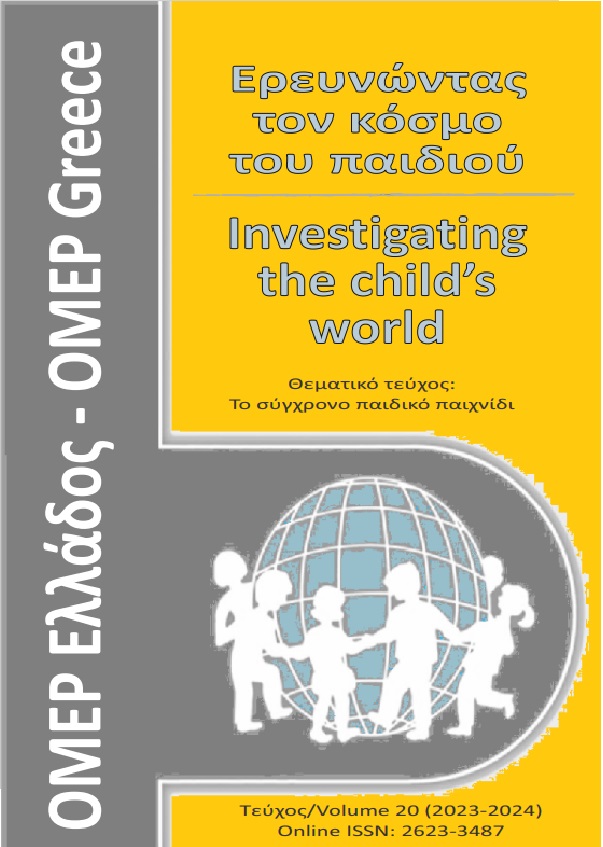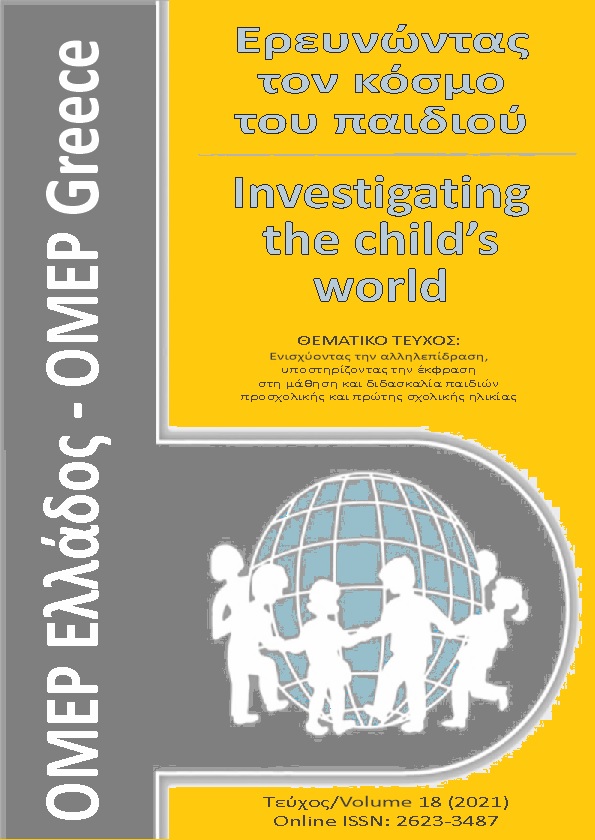Preschool children’s perspectives on learning through play

Abstract
Discussion about learning through play in ECE contexts is growing worldwide. The present study, which is part of a larger research project that investigates different aspects of learning from the perspective of children and other stakeholders in Greece, focuses on how children perceive the relationship between play and learning. The theoretical position of the project, within participatory pedagogical and research approaches, valuing young learners’ views in research and practice, recognises them as competent and expert informants. In line with this perspective, the whole project used a multimodal methodology. Findings from photo-supported interviews with 35 kindergarten children are analysed and discussed in the present study. Data analysis showed that children connect learning to play and acknowledge that learning takes place through play. For them, play activities in the kindergarten seems to serve as both a learning opportunity and a learning environment. Moreover, the participants acknowledged themselves as active contributors to the educational process and demonstrated an understanding of the different learning strategies they enact during play. At the same time, peers were found to have a central role in the learning process during play, while teachers and family members were found important in some cases.
Article Details
- How to Cite
-
Kanaki, M., & Papandreou, M. (2024). Preschool children’s perspectives on learning through play. Investigating the child’s World, 20, 34–48. https://doi.org/10.12681/icw.35451
- Section
- Scientific articles & educational projects

This work is licensed under a Creative Commons Attribution-NonCommercial 4.0 International License.
Authors who publish with this journal agree to the following terms:
· Authors retain copyright and grant the journal right of first publication with the work simultaneously licensed under a Creative Commons Attribution Non-Commercial License that allows others to share the work with an acknowledgement of the work's authorship and initial publication in this journal.
· Authors are able to enter into separate, additional contractual arrangements for the non-exclusive distribution of the journal's published version of the work (e.g. post it to an institutional repository or publish it in a book), with an acknowledgement of its initial publication in this journal.
· Authors are permitted and encouraged to post their work online (preferably in institutional repositories or on their website) prior to and during the submission process, as it can lead to productive exchanges, as well as earlier and greater citation of published work.



